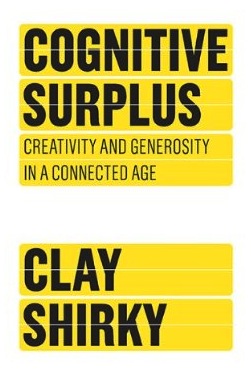Your next employment contract
/ You own your brain. The hackathon we're hosting has reminded me of this.
You own your brain. The hackathon we're hosting has reminded me of this.
More than one person has expressed difficulty with reconciling their wish to participate in the event with their employment contract, which probably says something like this:
Everything you do belongs to us.
Your family photos belong to you
Yesterday I read something about US government intellectual property. I knew that most government content is free of copyright, and what I read confirmed it. It's a sort of mirror image of the situation we have in industry (this is from ACQuipedia):
Works created by Federal employees in the course of their official duties are automatically in the public domain and may not be copyrighted by anyone.
Interestingly, works not created in the course of their duties are their copyright as normal. So a soldier's photographs on her cellphone are her intellectual property, even if they were taken on duty (provided she's not a photographer).
Our community should stand up for something resembling this same rule in the corporate environment. Of course works created in the course of your duties as an employed geoscientist or engineer belong to your employer. But clearly your family vacation photographs do not. And just as clearly, your edits to Wikipedia articles do not (unless that's your job, you lucky thing). And neither, with certain provisos, do your contributions to a hackathon.
What provisos? Well, there are other, equally important clauses about confidentiality in your contract. You may not legally disclose the company's proprietary intellectual property. So you can't show up at a hackathon and code up your company's latest migration algorithm. But coding up a new, previously unknown algorithm would be ethically OK, but if you're a geophysical programmer I can see the potential conflict there — it's a judgment call. I hope your company trusts you to make a fair decision. If the algorithm turns out to be awesome, and had 3 collaborators from different companies, then I say they should all be glad you got together to invent it. Innovation is not a zero-sum game.
Shop rights
 It turns out that there's a common law provision for the ownership of your brain. So-called shop rights are generally upheld by courts, at least in the US. According to an excellent guide to IP from the IEEE, they go like this (there are variants):
It turns out that there's a common law provision for the ownership of your brain. So-called shop rights are generally upheld by courts, at least in the US. According to an excellent guide to IP from the IEEE, they go like this (there are variants):
- confidential information and inventions or other creations made during the course of employment as a normal part of job duties belong to the employer
- inventions made by the employee off the job, using the employee's own time and materials, will generally belong to the employee (absent fraud, related inplant work of which the employee might be aware, or other special circumstances); and
- inventions not related to work duties, but created with some nontrivial use of the employer's time, funds or materials still belong to the employee, but the employer has limited rights to exploit the invention without payment of royalties or other compensation.
Awesome! This is perfectly sensible. Unfortunately, employers can write almost anything they like in their contracts, and it sounds to me like clauses that trample on these rights are fairly common. And they will continue to be common until people start refusing to sign contracts that contain them.
Demand change
In light of all this, here are 3 things to demand (yes, demand — you do actually have some bargaining power when someone tries to hire you) in your next employment contract:
- At the very least, clauses limiting your shop rights should be removed. In their absence, conflicts will be resolved by the application of common law.
- You may contribute to Wikipedia, SEG Wiki, PetroWiki, SubSurfWiki, and other open content projects.
- You may contribute to OpendTect, Madagascar, and other open source software projects.
- You may contribute to unstructured events, including but not limited to unconferences, hackathons, and idea jams.
Bottom line: your employer owns some of your creations, specifically the ones you make for them, at work, with their data, their tools, their employees, and their ideas. But you own the rest, and you emphatically own your creativity.
Changing how we are employed is entirely up to us. Legal professionals will pin us down to the bare minimum of openness and freedom otherwise — it's their job. So push back, ask for change, and retain your brain.
















 Except where noted, this content is licensed
Except where noted, this content is licensed